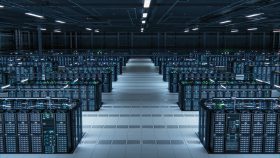Zebra Shares Vault on Strong Growth

Enterprise asset-tracking, mobile computing, and Internet of Things (IoT) company Zebra Technologies (ZBRA) today posted solid earnings and guided higher for the year today, powering its shares toward new highs.
Zebra shares vaulted 18.06 to 160.21 (+12.70%) in late trading, just shy of they 52-week high. Shares are up 50% over the last 12 months. Quarterly earnings were $2.48 per share, compared to earnings of $1.51 per share a year ago and about 10% higher than analyst estimates, according to Zacks Research.
The Lincolnshire, Ill.-based company announced year-over-year sales growth of 13% to $1.012 billion. Analysts expected $989 million in revenue. For the third quarter, Zebra Technologies expects $2.60 in per-share earnings on sales of $1.061 billion.
Zebra executives said the growth came across all business segments. Zebra makes bar-code scanners, RFID tracking chips, and other asset-tracking devices and software. The company's strong results have positioned it well for the IoT boom, as its mobile tracking platforms can collect and analyze information from business assets and equipment.
The company is now focused on expanding asset-tracking and mobile devices into vertical markets as well as launching software applications that can process and analyze data from devices. Zebra recently announced that it's acquiring Xplore Technologies (XPLR), a manufacturer of mobile computing devices targeting business use. That $66 million deal that is expected to close this quarter.
Zebra CEO Anders Gustafsson said on the earnings call that "smart products and infrastructures capture timely and relevant information creating data-powered environments, supported by Savanna, our data services platform."
Gustafsson expects that Zebra's software improves business with real-time communications and location-based information. He said the company is taking advantage of "five mega trends, which include the proliferation of connected devices, mobility within the enterprise, cloud computing, the transition from task worker to knowledge worker and the move to a real-time, on-demand economy.

















